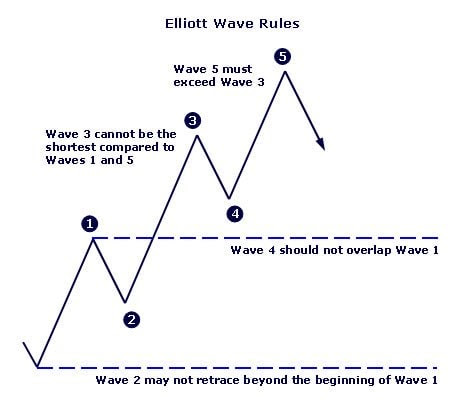Decoding MicroStrategy’s Bitcoin Strategy: Ponzi Scheme or Genius Investment?
In the world of finance, where traditional investments like stocks and bonds have long been.. The post Decoding MicroStrategy’s Bitcoin Strategy: Ponzi Scheme or Genius Investment? appeared first on 99Bitcoins.

In the world of finance, where traditional investments like stocks and bonds have long been the norm, MicroStrategy’s bold move into Bitcoin has stirred significant debate. At the heart of this debate are figures like Peter Schiff, known for his skepticism towards cryptocurrencies, and Michael Saylor, CEO of MicroStrategy, who has picked Bitcoin as the future of money.
Shares of #MicroStrategy just made a new 52-week low, down 90% from the record-high in Feb. 2021. Shareholders will pay dearly for @saylor's #Bitcoin obsession. Don't make the mistake of thinking 90% off is a good buy. This isn't just a sale, it's a going-out-of-business sale.
— Peter Schiff (@PeterSchiff) December 29, 2022
MicroStrategy’s Bitcoin Strategy: A Financial Chess Game or a Ponzi Scheme?
Peter Schiff, a vocal critic of Bitcoin, recently took to X to express his concerns over MicroStrategy’s plans. Schiff pointed out that on a day when Bitcoin’s price rose, MicroStrategy’s stock ($MSTR) actually fell by 5.5%.
According to Schiff, this could indicate that Michael Saylor was offloading MSTR shares to buy more Bitcoin, thus supporting its price. Schiff framed this as a “shell game,” questioning how long this financial juggling act could continue without collapsing like most Ponzi schemes.

Schiff’s critique is rooted in his belief in traditional assets like gold, which he argues has intrinsic value due to its utility in various industries. In contrast, Bitcoin, in Schiff’s view, lacks such utility, making its value purely speculative. This narrative positions MicroStrategy’s substantial Bitcoin investments as a speculative bubble rather than a sound financial strategy.
EXPLORE: Detroit To Accept Crypto For Taxes And Fees In Bid To Attract Blockchain Firms
On the other side, Michael Saylor sees Bitcoin as the apex property of the human race, a digital gold with immense potential for capital preservation. MicroStrategy’s strategy under Saylor has been to leverage Bitcoin’s finite supply against the backdrop of an ever-expanding monetary base from central banks worldwide. This approach, Saylor argues, is not speculative but a forward-thinking move to safeguard against inflation and the devaluation of fiat currencies. Bitcoin itself is valued at around $107,000 a piece.
The United States should buy #Bitcoin and sell Gold.pic.twitter.com/HD69iy1EAO
— Michael Saylor
(@saylor) December 7, 2024
Elliot Wave Theory: Predicting MicroStrategy MSTR Stock Future?
Amidst this financial tug-of-war, another perspective emerges from the technical analysis sphere, particularly through the lens of Elliott Wave Theory. This theory, named after Ralph Nelson Elliott, posits that market prices move in repetitive patterns or waves, influenced by investor psychology.

(Source)
A tweet by @Freedom_By_40 suggested applying Elliott Wave Theory to analyze MicroStrategy’s stock movements. This theory could offer insights into whether the stock’s recent performance is part of a larger wave pattern suggesting future growth or decline. If MicroStrategy’s stock price drop is part of a corrective wave, it might rebound stronger, reflecting a bullish market sentiment toward Bitcoin and, by extension, toward MicroStrategy’s strategy.
$MSTR detailed count for rest of cycle.
For those who are new here please do not pay as much attention to the time as the price (the time is just a best guess projection as EW is not time based but price based). https://t.co/rU3b4xTLEr pic.twitter.com/SUNCckzpVR
— Freedom By 40 (@Freedom_By_40) December 18, 2024
However, if this drop signals the beginning of a bearish wave, it might indicate that the market is losing faith in Bitcoin’s long-term value proposition or in MicroStrategy strategy to back its financial stability with Bitcoin. Such analysis could be crucial for investors trying to predict the sustainability of MicroStrategy’s approach to navigating the volatile cryptocurrency market.
The debate over MicroStrategy’s Bitcoin investment strategy encapsulates broader questions about the future of money and investment. Peter Schiff’s critique highlights the risks of speculative bubbles, while Michael Saylor’s advocacy for Bitcoin underscores a vision of digital assets transforming traditional finance. Meanwhile, tools like the Elliott Wave Theory offer a way to predict potential outcomes based on historical market behavior.
EXPLORE: 11 Best AI Crypto Coins to Invest in 2024
Join The 99Bitcoins News Discord Here For The Latest Market Updates
The post Decoding MicroStrategy’s Bitcoin Strategy: Ponzi Scheme or Genius Investment? appeared first on 99Bitcoins.
What's Your Reaction?








![The Ultimate Guide to B2B Marketing in 2025 [New Data + Expert Tips]](https://www.hubspot.com/hubfs/b2btrends.webp)
![The 9 Building Blocks of a Business’s Organizational Structure [With Diagrams]](https://www.hubspot.com/hubfs/business-building-blocks-1-20250109-2858404.webp)






























.png)












































